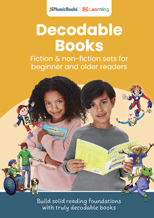What if a young illiterate man had not travelled to New York from the Bahamas to find work? What if he hadn’t been rejected from the American Negro Theatre in Harlem because he couldn’t read? What if he hadn’t had to work as a dish washer in a restaurant in New York? What if an […]
Read MoreDyslexia
What is phonemic awareness and why we should teach it

We know that phonological awareness is one of the 6 components of learning to read: phonological awareness – being able to identify sounds in words which includes syllables, rhyme, alliteration and phonemes. phonics – to recognise letters and combinations of letters that represent the 44 sounds of English fluency – ability to read with pace, […]
Read MoreWhy the Phonics Check is not just for Year 1
I recently had a Zoom meeting with a Year 6 teacher who discussed how a number of his pupils were struggling with reading and he said he was using the Year 1 phonics check to assess them. This may seem odd, but is has never occurred to me that the Year 1 Phonics Check is […]
Read MoreParent shines a light on the science of reading
It is so sad to hear when a young child says he wants to kill himself because he can’t read as described in the interview at the end of this piece. It is uplifting to hear how a parent turned this child’s life around by getting him assessed and starting him on a structured literacy […]
Read MorePhonics vs morphology: why we need both!
Some time ago, I attended a course on morphology as part of my professional development. It was presented by a dyslexia organisation. At the time, I was using an excellent phonics programme (Sounds-Write) and felt I needed to develop my understanding of morphology and its role in teaching kids to read. The presenter was very […]
Read MoreGirls can be dyslexic too
In the past, most of the students referred to the Learning Center where I work were boys. It was thought that dyslexia was a disability that mostly boys had. Girls were very good at disguising their reading disability with neat handwriting and good behavior. Sitting quietly at the back of the classroom – while failing […]
Read MoreWhy ‘structured’ reading instruction is not enough
Why we need to teach ‘structured and cumulative’ reading instruction… In the bad old days before I learnt how to teach kids to read, I taught kids to read in a structured way. That is, what I thought was structure: Week 1: letters a, b, c, d Week 2: letters e, f, g, h Week […]
Read MoreHow to make comprehension fun
Most teachers will agree that the purpose of reading is comprehension. But many children, especially kids who struggle with reading and spelling, hate comprehension activities. It’s not because they hate comprehending or answering questions. It’s because many comprehension activities often entail writing the answer. And many kids hate writing. Why? Because it’s really hard! Writing […]
Read MoreShould we teach spelling in the digital age?

Many children struggle with spelling. Is it important to teach them how to spell in the digital age when ‘Spell Check’ is there to help? The answer is ‘yes’. Why? Firstly, because at present Spell Check makes errors, as do voice recognition tools. Spell check may offer homophone or spelling options – but can students […]
Read MorePhonic Books is Going Red for the month of October!

What is all this ‘going red’ about? Go Red is a community of passionate individuals and organisations that campaign to promote literacy and a greater understanding of dyslexia. Being able to read and write is something most of us take for granted. Dyslexia Awareness Month shines a light on the 1 in 10 children who […]
Read More
